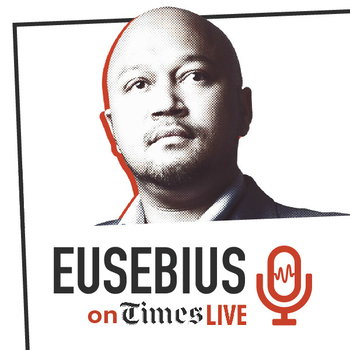
France vs Russia: the renewed scramble for Africa
Loading player...
Africa is "the last business frontier" and that is why geopolitical tensions between countries like France and Russia include a renewed scramble for Africa. This is the view of Koffi Kouakou, an Africa analyst and senior fellow at The Centre of Africa-China Studies at the University of Johannesburg. He unravelled this claim in detail in the latest episode of Eusebius on TimesLIVE.
Kouakou started off by narrating the continued effects of French colonialism on the African continent. He provided, and explained, evidence of economic, military and cultural domination from colonial times that still endure, in many concrete ways, today. When challenged by McKaiser about the role of neo-colonial, political predator elites that took over from the French, Kouakou explained how the relationship between France (and French companies and the French military) are self-serving, often repressive black-led governments result in economic ruin for ordinary citizens, quite apart from human rights abuses when there is popular dissent. Blame is to be apportioned between colonial powers and repressive post-colonial governments.
McKaiser asked Kouakou what the core tension between France and Russia is geopolitically, and why Africans should care? In the remainder of this riveting political history and realpolitik discussion, Kouakou explains how France's lack of moral authority on the continent means that Russia is a competitor threat insofar as Russia is forging relationships with many African countries, focusing in particular on assisting governments with security support in the fight against (to take but one example) domestic terrorism in some African countries. In countries where the French military presence has not alleviated terrorism but simply acted as an extension of repressive government apparatus, citizens would be more receptive, potentially, to Russian overtures. This is true too of countries that remain very poor despite extractive industries that generate enormous value.
Kouakou started off by narrating the continued effects of French colonialism on the African continent. He provided, and explained, evidence of economic, military and cultural domination from colonial times that still endure, in many concrete ways, today. When challenged by McKaiser about the role of neo-colonial, political predator elites that took over from the French, Kouakou explained how the relationship between France (and French companies and the French military) are self-serving, often repressive black-led governments result in economic ruin for ordinary citizens, quite apart from human rights abuses when there is popular dissent. Blame is to be apportioned between colonial powers and repressive post-colonial governments.
McKaiser asked Kouakou what the core tension between France and Russia is geopolitically, and why Africans should care? In the remainder of this riveting political history and realpolitik discussion, Kouakou explains how France's lack of moral authority on the continent means that Russia is a competitor threat insofar as Russia is forging relationships with many African countries, focusing in particular on assisting governments with security support in the fight against (to take but one example) domestic terrorism in some African countries. In countries where the French military presence has not alleviated terrorism but simply acted as an extension of repressive government apparatus, citizens would be more receptive, potentially, to Russian overtures. This is true too of countries that remain very poor despite extractive industries that generate enormous value.

